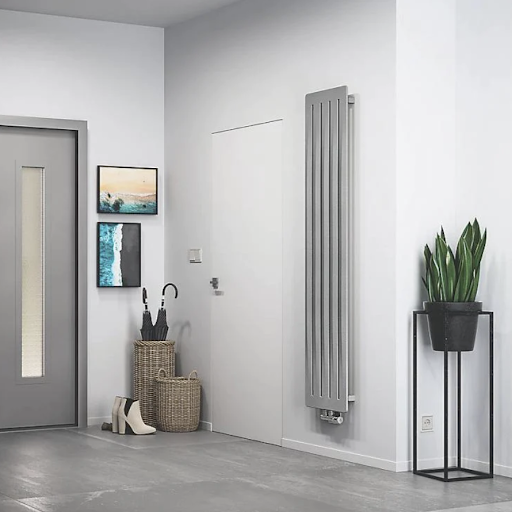As the chill of winter creeps in, the unsung heroes of our homes spring into action—boilers. These vital components of our heating systems work tirelessly, often without a second thought from us, contributing to energy-efficient homes, to ensure our living spaces remain sanctuaries of warmth.
In an era where energy efficiency is not just a preference but a necessity, understanding the pivotal role boilers play in creating energy-efficient homes has become paramount. This article invites you on a journey to explore the intricate world of boilers, from their fundamental operations to the latest innovations that help in reducing our carbon footprint while keeping us comfortably warm.
Whether you’re considering an upgrade to your existing heating system or simply curious about how boilers contribute to energy efficiency, this exploration will shed light on the importance of making informed choices for a sustainable future.
Understanding Boilers and Their Efficiency
Boilers are a core component of a home’s heating system, often unnoticed, but always working to keep you cosy. Let’s dive into what makes them tick and how their efficiency is crucial for an energy-smart home.
Types of Boilers
Combination (Combi) Boilers: Provide heat and instant hot water without the need for a separate tank.
System Boilers: Require a cylinder for storing hot water but no tank for the heat itself, balancing space and efficiency.
Conventional Boilers: Use a storage tank and cylinder, suitable for larger homes with multiple bathrooms.
How Boilers Work
Boilers heat water to provide warm air or radiant heat which is distributed throughout your home. The process involves:
- Burners: Ignite fuel — gas, oil, or electricity — to produce heat
- Heat exchangers: Transfer this heat to water
- Pumps: Circulate the heated water or steam through pipes to radiators or underfloor heating systems
Factors Affecting Boiler Efficiency
- Insulation: The better your home is insulated, the less work your boiler does.
- Maintenance: Regular check-ups help maintain peak efficiency.
- Age: Over time, boilers may lose efficiency; newer models tend to be more energy-efficient.
Boiler Efficiency Ratings
Efficiency of boilers is rated using the Annual Fuel Utilisation Efficiency (AFUE) percentage. The higher the AFUE, the more efficient the boiler. Ratings typically range from:
| AFUE Rating | Efficiency Level
|
|---|---|
| 90-95% | High Efficiency |
| 80-89% | Standard Efficiency |
| Under 80% | Lower Efficiency |
Modern boilers aim for the high-efficiency bracket to save energy and costs.
Maximising Home Energy Efficiency with Boilers
Boilers can play a significant role in improving your home’s energy efficiency. Selecting the right technology and maintaining it properly are crucial steps to ensure you get the most out of your investment.
Installing Energy-Efficient Boilers
Investing in a high-efficiency boiler that suits the size of your home is crucial to reduce waste and save on energy bills. For homeowners considering a new boiler installation in Leeds, it’s essential to look for boilers with an ‘A’ energy rating or one that is Energy Star certified.
These boilers are designed to use less energy and reduce greenhouse gas emissions, making them an excellent choice for those looking to enhance their home’s energy efficiency while also taking a step towards environmental responsibility.
- Considerations for installation:
- Proper sizing: An oversized or undersized boiler can increase energy usage.
- Professional installation: Ensures optimal performance and safety.
Regular Maintenance and Servicing
Regular maintenance helps extend the life of your boiler and keeps it running efficiently. Schedule annual servicing to:
- Clean essential components
- Ensure proper combustion
- Check seals and pipes for leaks
- Identify potential issues before they become costly repairs
Tips:
- Look for changes in performance as indicators of when servicing might be needed.
- Keep filters clean and check the pressure gauge periodically.
Innovations in Boiler Technology
Embrace the latest innovations such as condensing boilers, which can have an efficiency rating of over 90%. These systems recover heat that would typically be lost through flue gases. Other advancements include:
- Modulating burners: Adjust the burner output according to real-time heating demands, saving energy.
- Weather compensation controls: Adjust boiler operation based on outdoor temperatures.
Integrating Renewable Energy Sources
By integrating renewable energy sources, you can further enhance the efficiency of your boiler system. For example solar water heating can be used in conjunction with your boiler to preheat water, thus reducing the demand on the boiler. Biomass boilers are a sustainable option that utilises organic materials like wood pellets.
The Future is Warm and Energy-Efficient with Advanced Boilers
In the quest for more energy-efficient homes, boilers emerge as central figures in the narrative of sustainability and comfort. As we have seen, the choice of boiler, coupled with regular maintenance and the integration of innovative technologies, can significantly influence not just the warmth of our homes but also the health of our planet.
High-efficiency boilers, smart technologies, and renewable energy sources offer a beacon of hope for reducing energy consumption and greenhouse gas emissions. By embracing these advancements, homeowners have the power to transform their living spaces into models of efficiency and environmental stewardship.
Each decision we make about our heating systems can be a step towards a more sustainable and energy-efficient future. Let the warmth of our homes reflect our commitment to a better, greener world.

